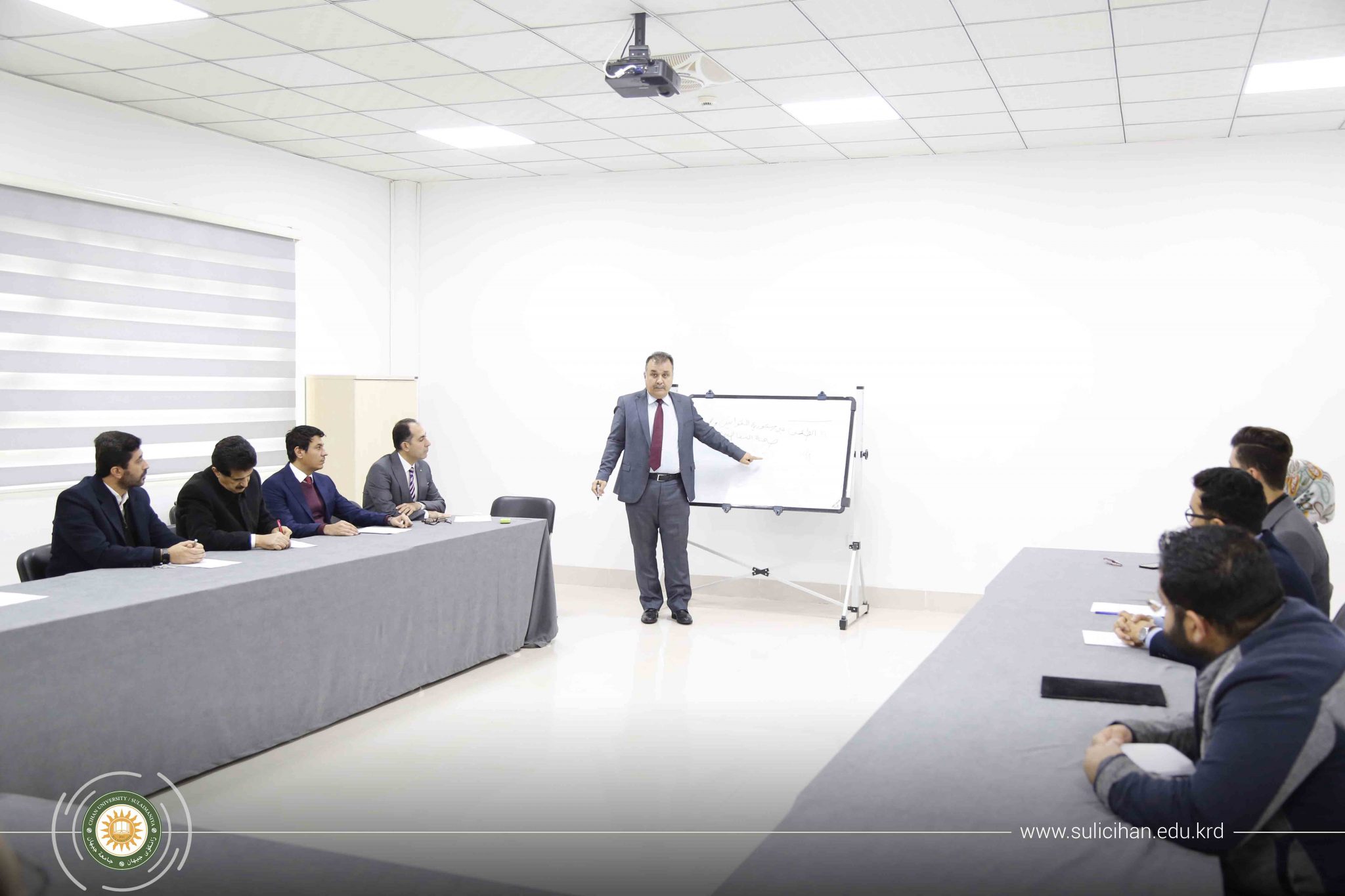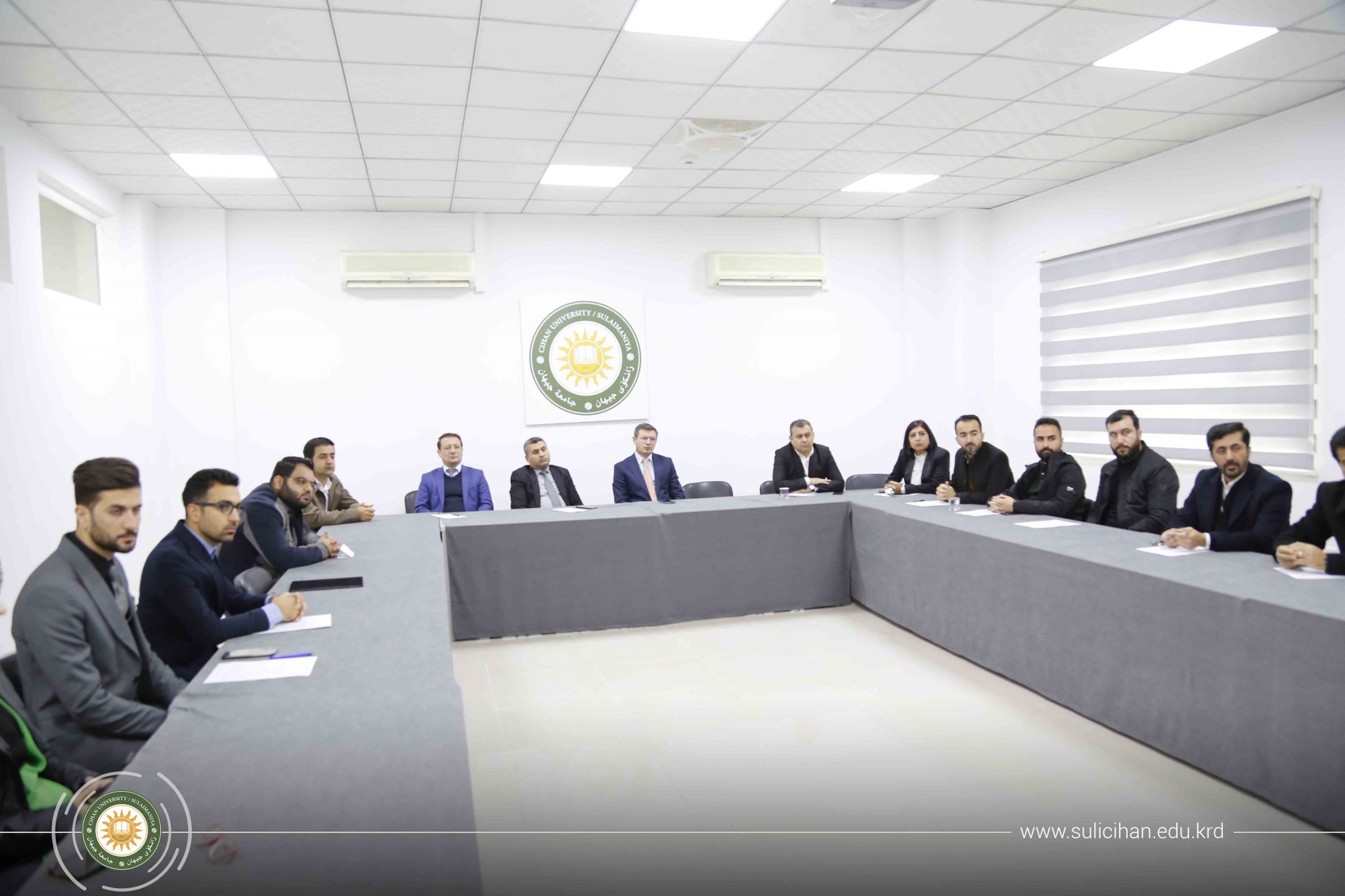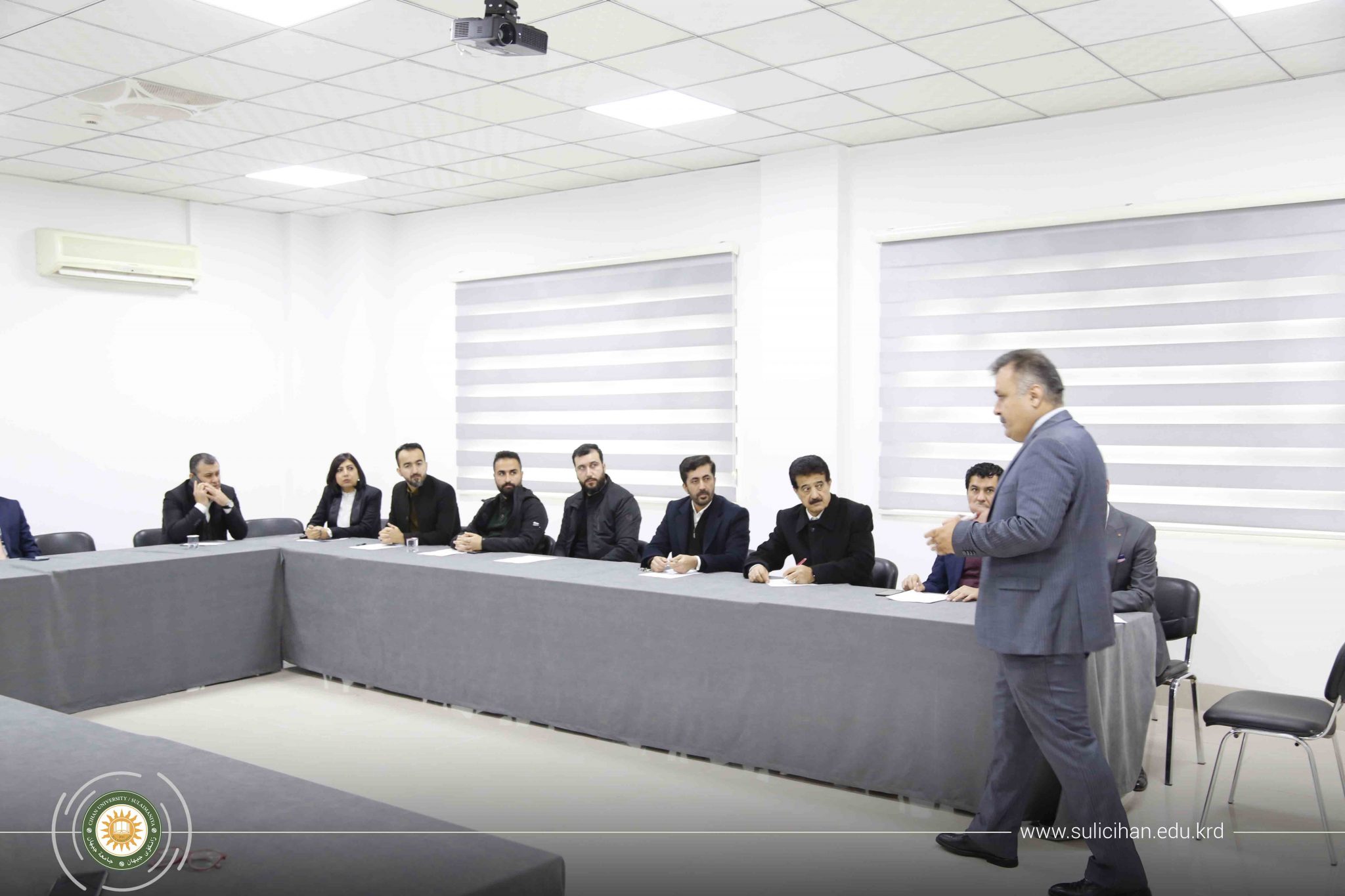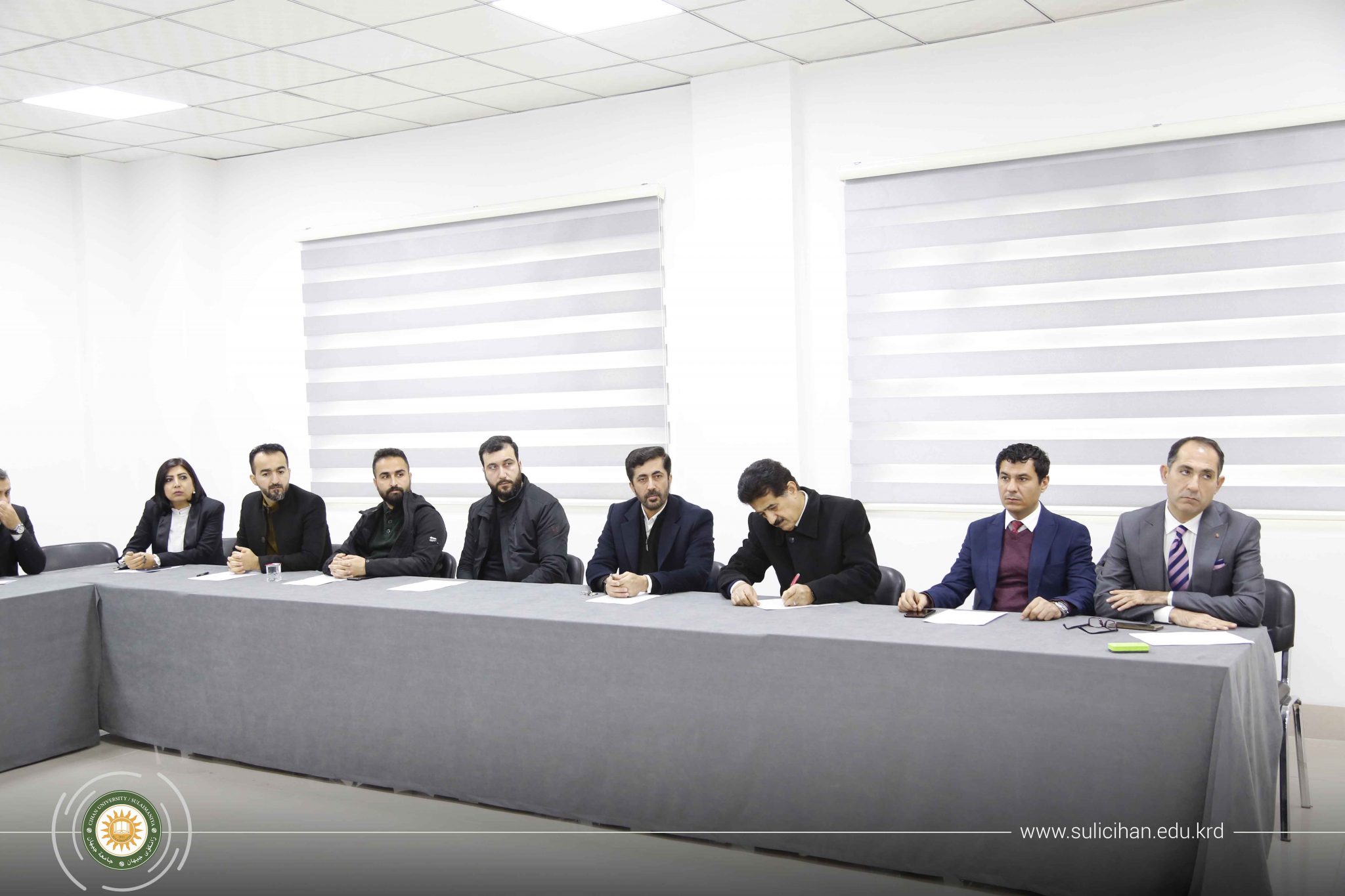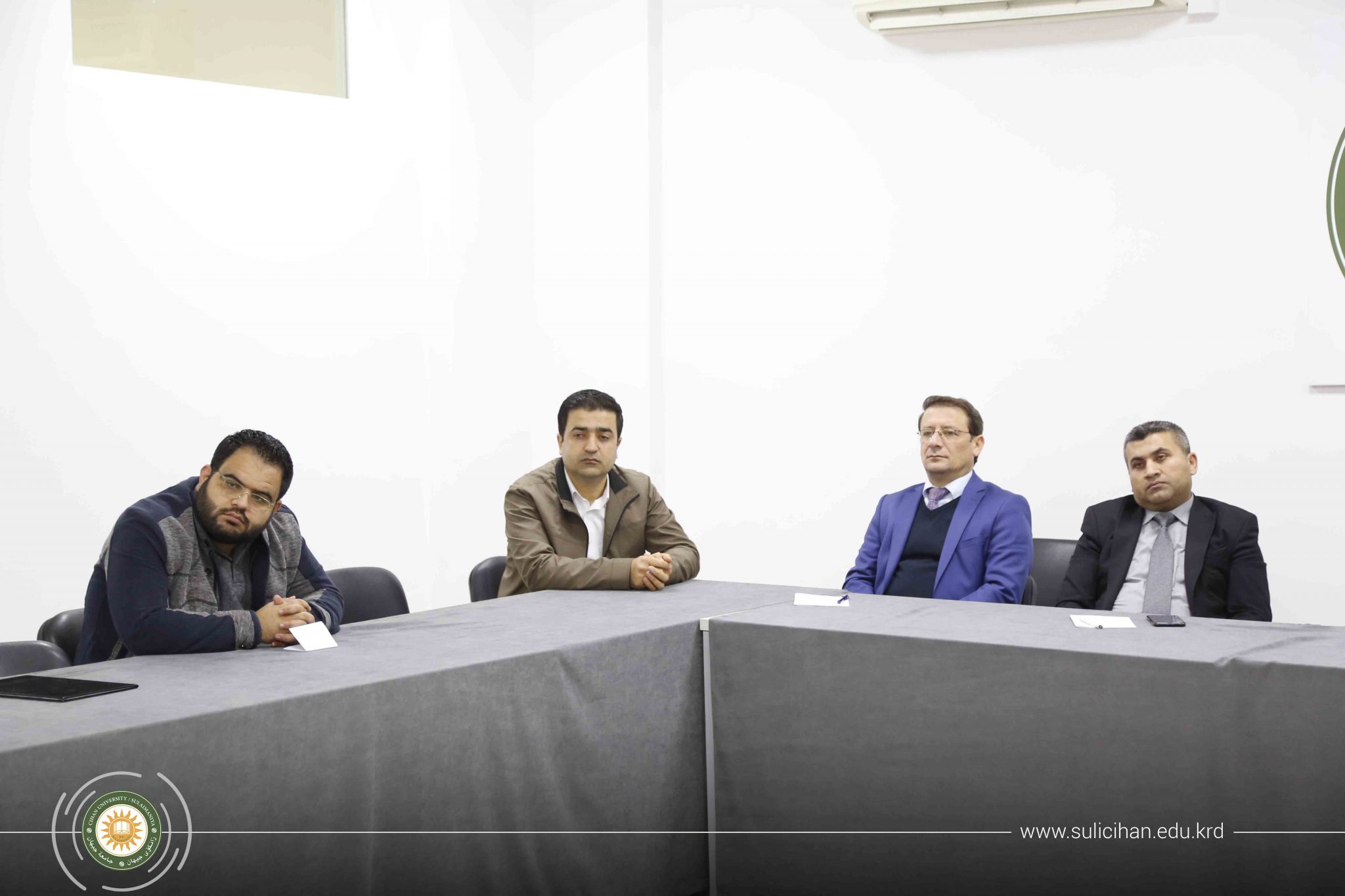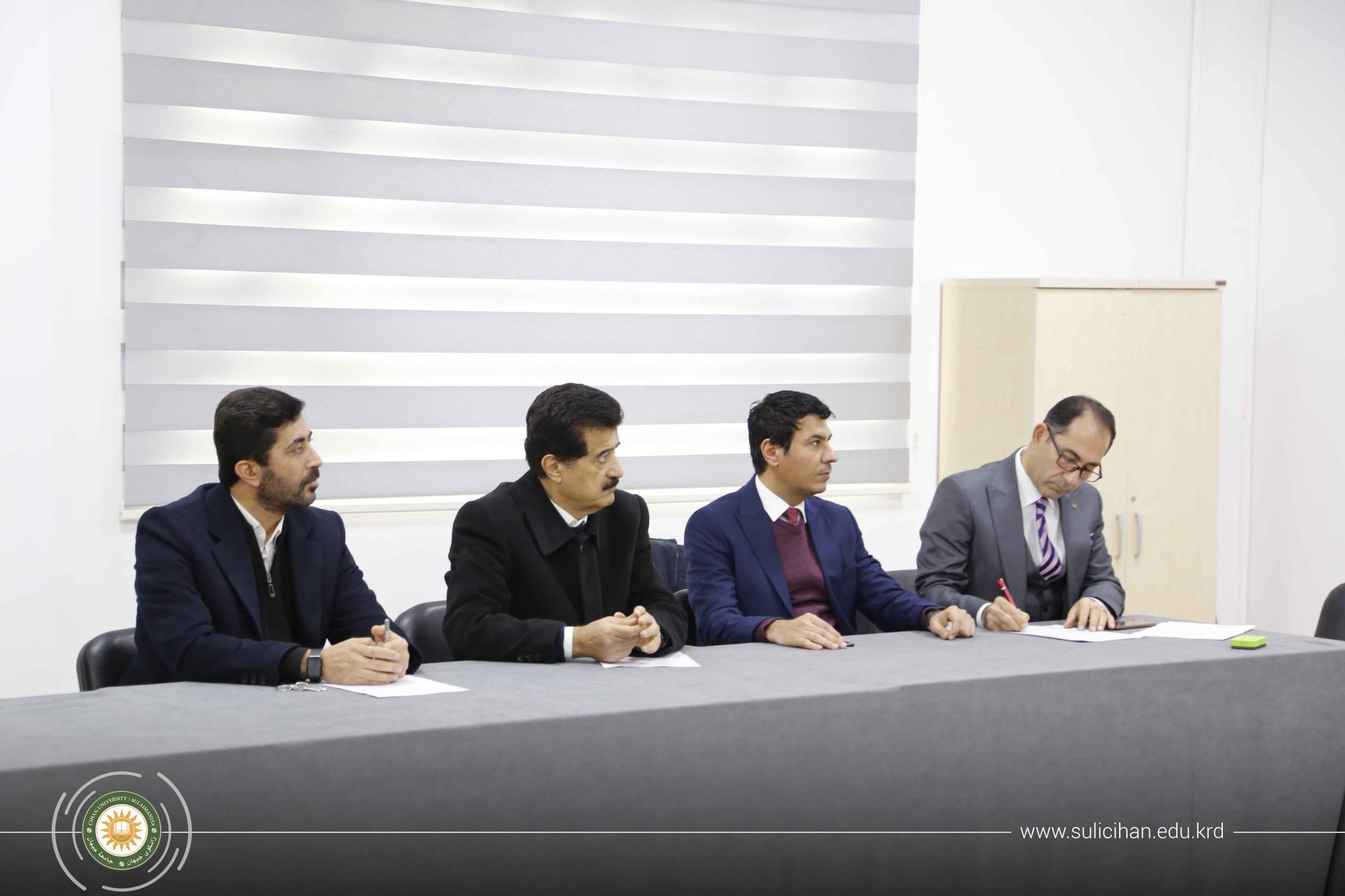
On 24th Dec 2022, Assistant Professor Dr. Awat Omer Haji, President of the Garmian Administration Court of Appeal presented a seminar at Cihan University Sulaymaniyah titled ‘The legal implications of granting the judge the right to challenge the constitutionality of laws’. The President of the Court of Appeal explained that there is a correlation between the disputes between people and the judicial apparatus in a given state or society. And, further explaining that there wouldn’t be a need for a judiciary without the existence of problems and disputes between people.
Since disputes arise between two parties, one party requests justice and the other party is asked to give justice; so the remedies to these disputes need an impartial judiciary to provide judicial relief.
The President of the Court of Appeal argued that the law prohibits the judges from considering cases, in which the judge has an interest in the litigation, or if the judge is related to a litigant, then the judge should be disqualified. And, if during the course of the litigation, the judge shows a bias against or in favor of one party or acts in a manner that would be deemed improper, which could justify asking the judge to be replaced and filing a complaint against him or her.
More importantly, Dr. Awat Omer Haji established that, in addition to the above, two important principles follow from the principle of judicial impartiality, namely the principle of the independence of the judiciary and the principle of separation of powers.
Finally, procedural implications were discussed when it comes to granting the judge the right to challenge the constitutionality of laws such as the presence of interest and litigation as requirements in filing a lawsuit and legal defenses. As a result, it was concluded that granting the judge the right to challenge the constitutionality of laws may inflict injustice instead of achieving it.


